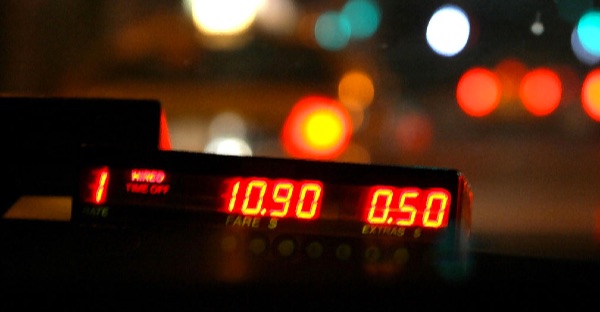If Uber Wants to Operate in NYC, It Should Reveal Trip Data Like Other Taxis

Uber is resisting a Taxi and Limousine Commission rule change to require ride-hailing companies to provide trip data that would shed light on how they affect traffic and the broader transportation system. The TLC already collects this information from yellow and green cabs.
Currently, the TLC collects pick-up data — the date and time a ride begins, along with the approximate location — from yellow cabs, green cabs, and ride-hailing companies. But only cabs provide trip destination data. Without that data from Uber and Lyft, important information about traffic and travel patterns will remain out of public reach.
Under the new rules, the TLC would require Uber and similar companies to provide the agency with data on drop-offs — the date, time, and location where a trip ends. This would not impose any disclosure requirements beyond what already applies to yellow and green taxis. The TLC should adopt the new rules despite Uber’s objections.
The TLC is touting the rule change as a Vision Zero initiative, since it would give a clearer picture of how many hours FHV drivers are working, and because location data would help confirm complaints about reckless driving.
There are other, equally important reasons this data is vital to the city. As of fall 2015, Uber accounted for 66 percent of all “black cars” in NYC, with more than 23,000 affiliated vehicles on city streets, and its presence has only grown since then. Without destination data for all these vehicles, NYC is in the dark when it comes to the effect of Uber and Lyft on congestion.
Uber has proposed submitting information on trip duration, but that’s no substitute for destination data. To protest the rule change, the company alleged that the TLC can’t be trusted to secure data and launched a public relations campaign accusing the TLC of trying to “track” its customers (which Uber in fact does, even when customers are not in cabs).
But the city doesn’t want information that would identify riders. The destination data would be anonymized, just like it is for taxi trips.
Speaking with AMNY, the Rudin Center’s Sarah Kaufman said that Uber has other motives to keep this data under wraps. “With what happens in New York, other cities often follow suit,” said Kaufman. “Uber’s success is derived from its use of data, and this could jeopardize their competitive advantage.”
If Uber’s business model is at odds with managing traffic on NYC streets, that’s not the TLC’s concern.
Update: Uber spokesperson Alix Anfang sent us a statement:
City Hall and the TLC already require apps like Uber to hand over a lot of sensitive personal data, including pick-up locations for every ride. Now they want even more, including where passengers are dropped off. This will enable them to piece together the full details of every trip New Yorkers take. We cannot understand why at the exact moment City Hall is fighting to delete municipal ID data it also wants to collect more personal information — information which it does not need and which could easily become public.
Correction: We originally reported that the TLC proposes to collect “neighborhood level” drop-off data from Uber and Lyft. The destination data collected would be more precise, and would be provided to the public at the neighborhood level, as it is for yellow and green cabs. The copy was amended.





